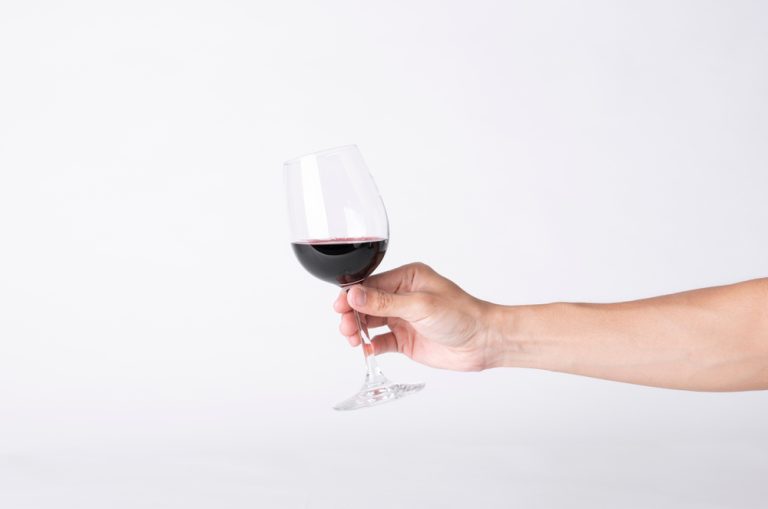Alcohol Dependence, Withdrawal, and Relapse PMC
by siteadmin
Content
For example, drugs like alcohol, benzodiazepines, methamphetamine, and opioids may result in physical dependence faster than drugs like marijuana or ecstasy. Still, repeated use of any addictive substance can lead to both physical and psychological dependence. Different substances can be classified based on their effects on the central nervous system.

Withdrawal symptoms occur because the body is attempting to counteract the stoppage of drug ingestion. Just like tolerance builds as the body adjusts to chronic drug use, physiological dependence on alcohol withdrawal occurs as the body reacts to its cessation. In both males and females, puberty is a period of activation of the hypothalamic-pituitary-gonadal (HPG) axis.
Six key differences: Physical vs. psychological dependence
In some cases, it is harder to pinpoint which came first, the mental disorder or the addiction. If you think you have NPD, try to make an appointment with a mental health professional. You can connect with a mental health professional using the Healthline FindCare tool. https://ecosoberhouse.com/article/the-6-stages-of-alcoholic-recovery-timeline/ As with all personality disorders, NPD is a long-standing condition. In order to receive a diagnosis of NPD, someone needs to display the above symptoms over several years. Fewer people seek out treatment for alcohol addiction than for any other mental illness.
For example, how easily available alcohol is, how much it costs, and pressure from friends, family or colleagues to drink. Treatment programs are often based on different theories and philosophies. So, it’s important to consult a doctor to find the best program for your needs. Addiction treatment is the best way to get help and overcome dependency or addiction.
Substance Use Treatment
Woburn Wellness Addiction Treatment is a leader in the addiction treatment field, with proven success in facilitating long-term recovery. Our team of top clinical & medical experts specializes in treating addiction coupled with mental illness, ensuring that each person receives individualized care. It is possible to have a deep psychological dependence on drugs or alcohol without ever experiencing the physical side effects of withdrawal. The only real way to look at addiction is as both a psychological addiction and a physical dependence. These components are inextricably linked to the chemical changes that occur in the brain.

The recent stance of the World Health Organization challenges the once-held belief that moderate drinking can boost cardiovascular health, casting a shadow on its supposed antioxidant benefits. As with many aspects of health and lifestyle, the key lies in personal responsibility, understanding and moderation. Alcohol’s place in our lives should be defined by informed choices and a quest for balance, ensuring both mental and physical well-being. They provide an escape from daily stressors, allow us to express our creativity and offer opportunities for social interaction. A 2015 study in BMC Public Health explored the link between artistic pursuits and mental well-being.
You Experience Any Symptoms of Alcohol Withdrawal When You’re Not Drinking
Drugs like heroin, alcohol, and prescription drugs can cause physical addiction. This is enveloped in the idea that addiction is a choice, but in truth, substance addiction is propelled by a variety of physiological processes. These processes affect behaviour and decision making, concluding that chemical reactions in the brain (psychological addiction) affect the physical functions in the body. Addiction is a behavioural syndrome that causes compulsive and repeated search (psychological dependence) or usage of drugs despite the negative psychological, physical, and social consequences. One of the things that can help greatly with dealing with long-term psychological effects is an EMDR therapy program. The physiological effects of alcohol often require a medical doctor if they continue for too long.
Finding Joy in Food: How Cooking With Others Can Bolster … – Boston Medical Center
Finding Joy in Food: How Cooking With Others Can Bolster ….
Posted: Tue, 19 Sep 2023 15:30:00 GMT [source]
Though it has many possible causes, the physiological effects of alcohol withdrawal can be enough for some people to continue drinking heavily and start a dangerous cycle. Narcissism is a personality disorder that may cause individuals to display grandiose and self-involved behaviors. Alcoholism is an addiction where people cannot control their alcohol use.
Drinking isn’t always harmful as long as you are doing so safely and in moderation. But how do you know if your drinking has gotten out of hand and if you are developing a physical dependency on alcohol? It all comes down to how often you drink, how much you drink, and how your body responds when you don’t drink. However, there are distinct differences between physical and psychological addiction. However, once the body starts processing the alcohol, the deep slumber transforms into low quality sleep.

If you’re worried that you have any of these symptoms, talk to a health professional at your GP surgery or seek further information from one of the organisations at the bottom of this page. The risk of developing a range of health problems increases the more you drink on a regular basis. On the other hand, dependence refers strictly to a physical need for a substance. The most notable therapies include rational emotive behavioural therapy, cognitive behavioural therapy, dialectical behavioural therapy, 12-step support group therapy, and family therapy.
Can Alcohol Improve Your Well-Being? A Psychologist Explains
This means that they are unable to control their drinking, and it often leads to problems with work, school, and relationships. While drinking alcohol may be an enjoyable way to spend time with others, feeling like you or a loved one can’t stop or cut down on alcohol use can be an alarming experience. If you’re concerned about your drinking habits, it may be beneficial to have a conversation with a health care professional and discuss ways to avoid (or manage) a physical or psychological dependence. Another option could be to seek counseling, where you or a loved one could explore the relationship with alcohol and learn about alternative coping mechanisms. While it is up to you to consider how you feel about your alcohol use habits, know that there are resources available if you would like assistance in changing it.
If you answered “yes” to most of the questions above, speaking with a therapist might be a good idea. Regardless, it’s always a good idea to look for mental health help if you’re experiencing something that causes you distress. A 2018 study examined the link between narcissism and alcohol use based on a survey of 345 college students.
Content Six key differences: Physical vs. psychological dependence Substance Use Treatment You Experience Any Symptoms of Alcohol Withdrawal When You’re Not Drinking Phone, Video, or Live-Chat Support How Addiction Affects the Brain A quick note on terminology For example, drugs like alcohol, benzodiazepines, methamphetamine, and opioids may result in physical dependence faster than drugs like…
Recent Comments
Archives
- May 2024
- April 2024
- March 2024
- February 2024
- January 2024
- December 2023
- November 2023
- October 2023
- September 2023
- August 2023
- July 2023
- June 2023
- May 2023
- April 2023
- March 2023
- February 2023
- January 2023
- December 2022
- November 2022
- October 2022
- September 2022
- August 2022
- July 2022
- June 2022
- May 2022
- April 2022
- March 2022
- February 2022
- January 2022
- December 2021
- November 2021
- September 2021
- August 2021
- July 2021
- June 2021
- May 2021
- April 2021
- March 2021
- February 2021
- January 2021
- November 2020
- October 2020
- September 2020
- August 2020
- July 2020
- June 2020
- May 2020
- April 2020
- March 2020
- February 2020
Categories
- – 345
- – 441
- – 733
- – 734
- ! Без рубрики
- 1
- 12.04
- 153 – İdman mərc oyunlarının həyata keçirilməsi məqsədi ilə hüquqi şəxsin akkreditasiya olunması Qaydasının və İdman mərc oyunlarının təşkili və keçirilməsi Qaydalarının təsdiq edilməsi haqqında – 758
- 1Win Brasil
- 1xbet apk
- 1xbet Argentina
- 1xbet Azerbajan
- 1xbet Azerbaydjan
- 1xbet Brazil
- 1xBet como Retirar Dinero Instrucciones Sin Comisiones 391
- 1xbet giriş
- 1xbet Kazahstan
- 1XBET Mobile APK Smartfon proqramını yükləyin 941
- 1xbet Russian
- 1xBet, 1xbet Giriş, 1xbet Türkiye, 1xbet Girişi, XBET, Birxbet – 65
- 1xbet: Azərbaycan Mərc Saytı 1xBET Az, 1xbet mobi 2023 130
- 1xbet: Azərbaycan Mərc Saytı 1xBET Az, 1xbet mobi 2023 912
- 5.03-2
- AI News
- Artificial Intelligence
- AZ Most BET
- Azerbajany Mostbet
- Azeri bukmeker saytlari: onlayn mərc saytları Azərbaycanda – 321
- Azeri bukmeker saytlari: onlayn mərc saytları Azərbaycanda 944
- Azərbaycanda turizm Tourizim və Səyahhət Agentliyi 853
- b1bet apostas
- Bahsegel giris
- Betsat
- Bettilt casino
- blog
- Bonus Za Rejestrację Bez Depozytu 2023 Bonus Z Brakiem Depozytu 817
- Bookkeeping
- Bootcamp de programação
- Bootcamp de programación
- casino
- Casino sitesi
- casino-gaming-online
- Cialis mit rezept
- Codere Argentina
- Codere Italy
- Cryptocurrency exchange
- Cryptocurrency News
- Cryptocurrency service
- Dasinmaz emlak elanlari, ev elanlari, ev alqi satqisi, kiraye evler, torpaq, obyekt, bina, bina ev, mənzil, villa, kreditle satilan evler – 49
- Dating
- Education
- FinTech
- Forex Reviews
- Forex Trading
- game
- Generative AI
- Graj w kasyno za darmo lub na pieniądze 529
- Greek online casinos
- Immediate Edge Review 2023 Is It a Scam or Is It Legit? – 110
- Immediate Edge Review 2023 Is It a Scam or Is It Legit? – 823
- Immediate Edge Review 2023: Is it a Scam or Legit? – 427
- Immediate Edge Review 2023: Is it Legit, or a Scam? Signup Now! – 225
- Immediate Edge Review: How Immediate Edge App Software Works? – 226
- International dating
- IT Vacancies
- IT Образование
- January 24
- Kazino oyunları Giris Yukle Bonuslar – 890
- Kommunal az : Kommunal ödənişlər 741
- La Palma Und Die Kataklysmus Ein Jahr Nach Dem Vulkanausbruch – 999
- LeoVegas Finland
- LeoVegas India
- LeoVegas Irland
- LeoVegas Sweden
- Mail Order Brides
- mostbet apk
- mostbet az 90
- MostBet AZ Most Bet Casino Qeydiyyat, Yukle Android App 799
- mostbet azerbaijan
- Mostbet Azerbaycan
- Mostbet Casino Mostbet Giriş Mostbet Casino Oyunları 617
- mostbet giriş
- Mostbet India
- mostbet kirish
- MostBet Mobile App və Bukmeker Şirkətinin Mobil Versiyası – 211
- MostBet Mobile App və Bukmeker Şirkətinin Mobil Versiyası 296
- MostBet Mobile App və Bukmeker Şirkətinin Mobil Versiyası 517
- mostbet ozbekistonda
- mostbet royxatga olish
- Mostbet Turkey resmi sitesi 340
- Mostbet Türkiye En Güvenilir Mostbet Tr Bahisçi Ofisinin Incelemesi 997
- mostbet uz
- Mostbet Uzbekistan
- New
- News
- NLP algorithms
- Online Apotheke
- Online Casino
- Online Dating
- pagbet brazil
- Paribahis
- Pin Up Online Casino Azerbaycan ️ Onlayn Kazino PinUp Rəsmi Saytı – 799
- Pin Up Yükle apk Indir – 67
- PinUp apk
- Play Game Online and Live, Bonus 25,000 188
- Potenzmittel
- resmi site Mostbet Türkiye kumarhanesine giriş Mostbet resmi aynasından para için çevrimiçi oynayın, kayıt olun 214
- SENSASİON: "Mostbet" və "1xbet" mərc oyunları Azərbaycan gəncliyini belə məhv edir – 466
- SmartPay az : Onlayn Ödəniş Portalı – 472
- Sober living
- Software development
- Sprawdź Najlepsze Kasyno Online w Polsce 733
- Telemedizin
- test2
- test3
- Uncategorized
- Uncategorized1
- UZ Most bet
- Vulkan Vegas 50 free spins 50 spinów na Book of Dead! 890
- Vulkan Vegas Bonus und Promo Code 2022 Bonusprogramm 238
- vulkan vegas DE
- vulkan vegas DE login
- Vulkan Vegas Germany
- Vulkan Vegas Poland
- VulkanVegas Poland
- Welcome to Mostbet casino, your one-stop destination for the ultimate gaming experience 404
- Yarışda kim qalacaq: Avropa Liqasının pley-off oyunları – 149
- Yarışda kim qalacaq: Avropa Liqasının pley-off oyunları – 911
- Будівництво
- Будівництво Будинків
- Вопросы И Ответы Про Бк Mostbet Gəlinlik, Gəlinlik Modelleri, Gəlinlik qiymətləri 450
- казино и букмекерская контора в Узбекистане – 414
- мобильная версия Мостбет в Узбекистане – 336
- Мостбет Mostbet УЗ Узбекистан, букмекерская контора в Узбекистане UZ – 736
- Мостбет Официальный сайт Mostbet. Зеркало. Скачать – 873
- Мостбет Уз Ставки на спорт и казино в букмекерской конторе Mostbet Uz – 857
- Онлайн-казино MostBet лицензированный игровой клуб с лучшими слотами 198
- Официальный сайт Мостбет Ставки на спорт Mostbet – 469
- ПАрущуки
- Приложение Mostbet UZ скачать на Андроид APK, Айфон IOS 23
- Сегодня, 1 июля началась онлайн-регистрация документов соискателей в магистратуру 12
- Скачать Mostbet UZ на Андроид apk и IOS: обзор букмекера – 816
- Финтех
- Форекс Брокеры
- Форекс Обучение
- Форекс партнерская программа